Reviews
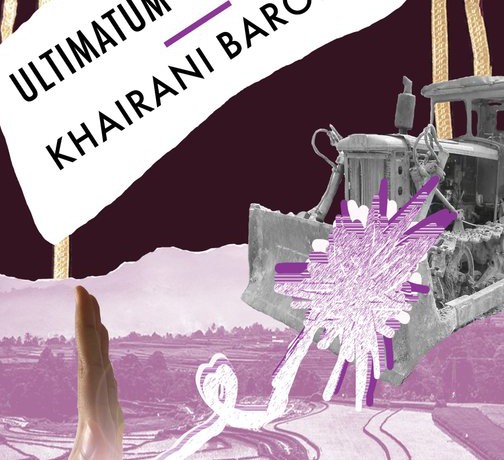
Review: Ultimatum Orangutan by Khairani Barokka
Drawing on her childhood in Indonesia and her experience as a disabled artist, Khairani Barokka’s second collection, Ultimatum Orangutan, brims with vitality, wisdom, and courage. Moving effortlessly between the personal and the universal, between hope and despair, the poet questions the spaces and times we live in, the relationship between an individual and society, and…
Read More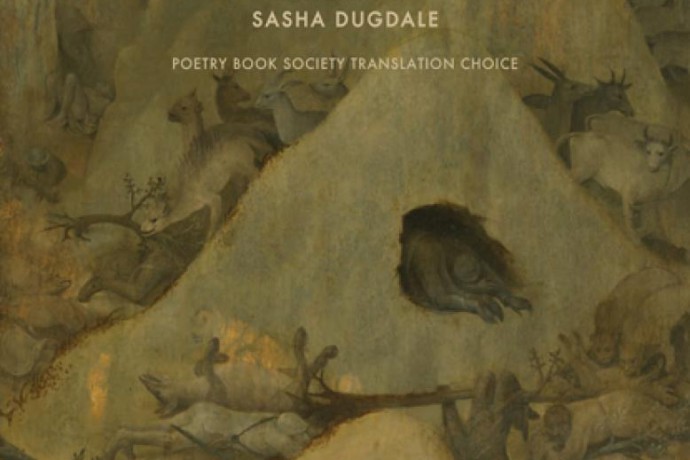
Breaking into Song — War of the Beasts and the Animals by Maria Stepanova, translated by Sasha Dugdale
What is a dead song? A silent song? A song unsung, unheard, forgotten? In ‘The Body Returns’, the concluding poem of Maria Stepanova’s powerful, playful, ferociously vital collection, War of the Beasts and the Animals, the narrator invites us to ‘Break the frozen earth, touch the dead song.’ The dead press in through the lines…
Read More
Review – sikfan glaschu by Sean Wai Keung
Sean Wai Keung’s debut collection sikfan glaschu begins with the disclaimer that its poems ‘should not be taken as reviews – nor should the quality of the poems necessarily be seen to reflect on the quality of any food or place which may bear a similar name’. However, this generous sentiment feels a tad ironic…
Read More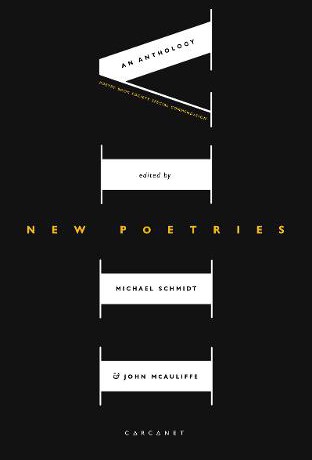
Review: New Poetries VIII: An Anthology
How to approach reviewing an anthology? Option 1: Dip in at random. Option 2: Read chronologically. Option 3: Begin with a poet known to you. Here’s me letting you into a not-so-big secret: I blended all three approaches when reading Carcanet’s New Poetries VIII. This handsomely designed anthology functions, on the one hand, as radar…
Read More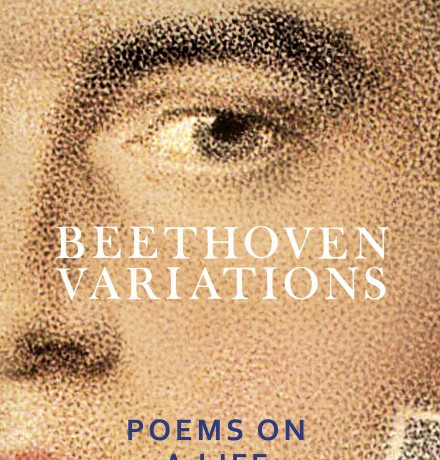
Review: Beethoven Variations by Ruth Padel
Many collections published over the last few years have fused poetry and biography, invoking historical, mythical, and religious characters. Poetry, in many ways, is the art of conjuring – be it specific images, emotions and speakers, or whole landscapes and decades-long sagas. These subjects, of course, can be either ‘real’ or fictional: often both; sometimes…
Read More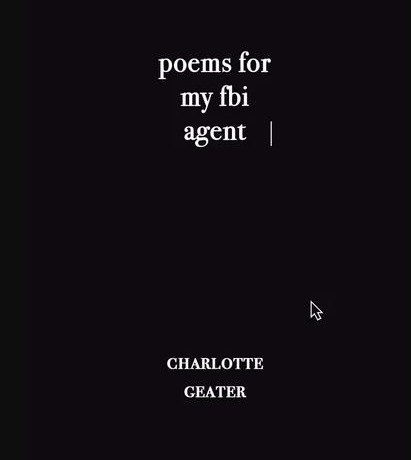
Review – poems for my fbi agent by Charlotte Geater
If ever I needed a distraction, it’s now. I have never needed poems more than I have this past year, as the isolating effects of the Covid-19 outbreak continue to sink in. It’s almost difficult to read Geater’s debut pamphlet poems for my fbi agent (Bad Betty Press) at this time, such is the dark…
Read More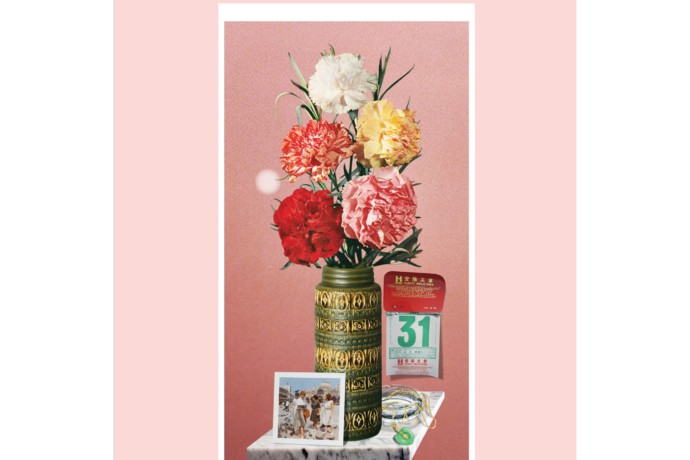
Review: Magnolia, 木蘭 by Nina Mingya Powles
The poems in Nina Mingya Powles’s debut Magnolia, 木蘭 are stronger for the braiding of repeated threads; longing, colour, pilgrimage, and memory return often to add strength and flexibility to the lines. Even the dual and translated title is a preview of the power behind the binding of two languages on a tongue and in…
Read More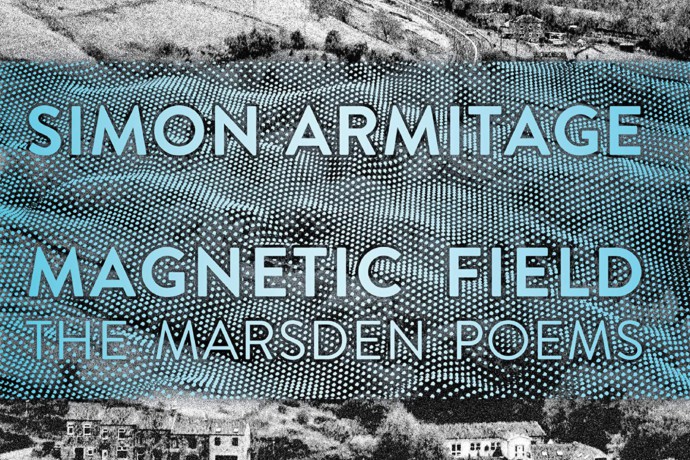
Review: Magnetic Field by Simon Armitage
Simon Armitage first referenced Marsden, West Yorkshire, in his inaugural collection Zoom! (1989). Over 30 years later, with Magnetic Field: The Marsden Poems, we’re taken there once again. The poems are like cardinal directions, pointing back to the landscape and inviting readers to gather in a geographical amphitheatre. As with many poets, the childhood home…
Read More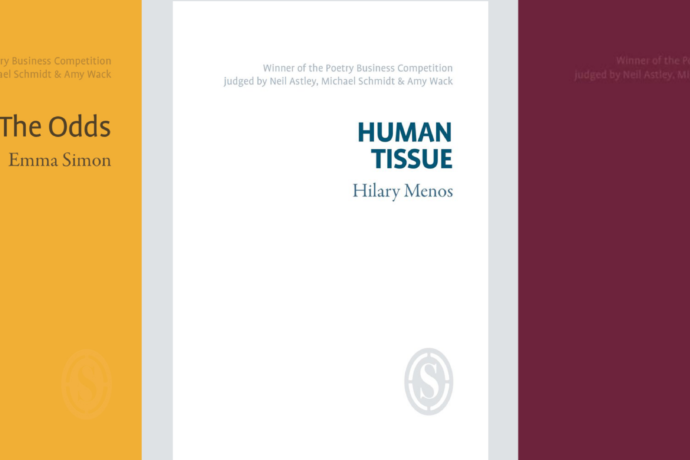
Round-up of Pamphlets by Simon, Menos, and On
The Poetry Business Competition has a great record of giving us exciting new work. These three winners – ranging from the accessible, witty, and moving poems of Emma Simon, through the powerful tale of a son’s kidney transplant in Hilary Menos’s Human Tissue to the intriguing new voice represented in Nick On’s Zhou – offer…
Read More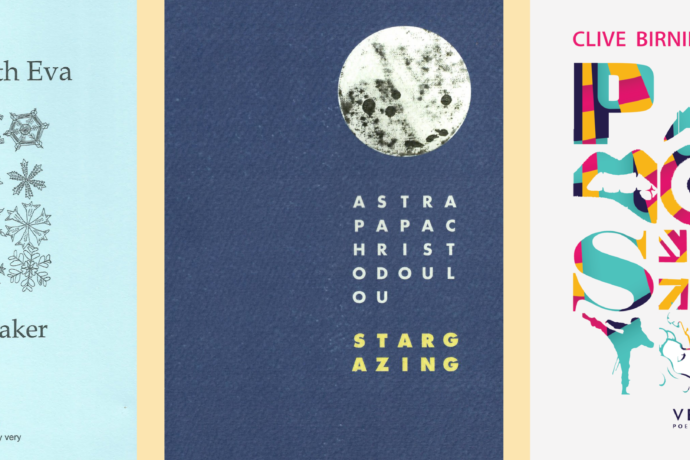
Review: Round-up of Pamphlets by Papachristodoulou, Baker, and Birnie
An interesting poetic constellation in this triad of new pamphlets; each has similarities to the others, but there are marked differences too. Elaine Baker’s Winter with Eva (V. Press) and Astra Papachristodoulou’s Stargazing (Guillemot Press) in particular are poles apart in formal and narrative strategies, and many readers may have a distinct preference for one…
Read More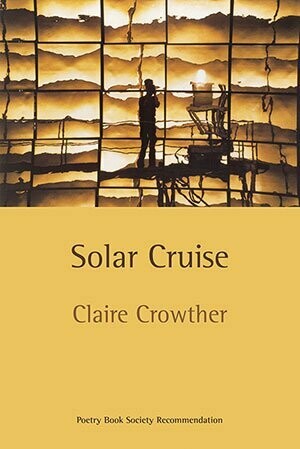
Review: Solar Cruise by Claire Crowther
A poetry of the climate crisis has been growing most noticeably over the last ten years, and it is a poetry of frustration. While individual poems and sequences have done this well elsewhere, Claire Crowther’s new collection, Solar Cruise, is a brilliant complete journal of the anger felt by those of us staring the heat-death…
Read More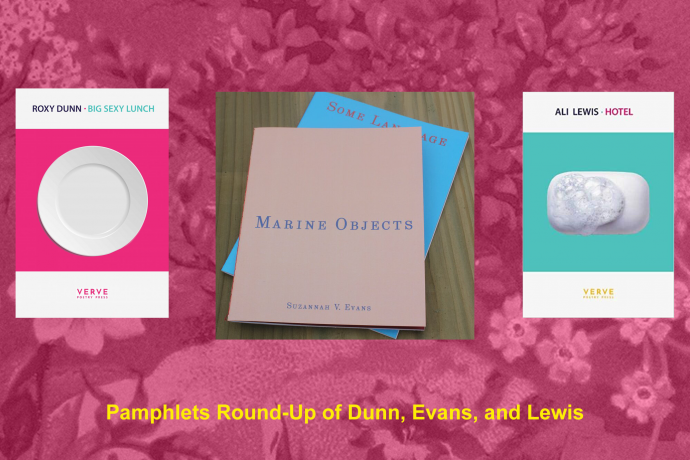
Review: Pamphlets Round-Up of Dunn, Evans, and Lewis
Two presses produce introductions for three emerging poets, proving that the pamphlet form is as versatile as ever. The title poem of Roxy Dunn’s Big Sexy Lunch sets the scene for what is to follow: indulgence without guilt. ‘I advise’, Dunn writes, ‘a big sexy lunch / The six course Italian kind / Beginning with…
Read More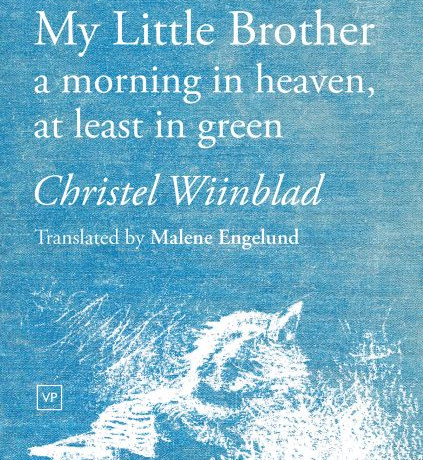
Review: ‘My Little Brother: a morning in heaven, at least in green’ by Christel Wiinblad
My Little Brother, the second collection of Danish poet Christel Wiinblad (but the first translated into English, by Marlene Engelund), is a moving account of Wiinblad’s brother’s life, his battle with schizophrenia, and his suicide attempt. It is also the story of her, the big sister – what she witnessed, the clues she missed, those…
Read More
Review: ‘Shine, Darling’ by Ella Frears
Reflections on movement and witness haunt Ella Frears’s debut, Shine, Darling. ‘I Knew Which Direction’, the prologue poem that offers a roadmap for our movement through the collection generally, also introduces the book’s metaphorical patron saint: the moon. The poem begins with its speaker on a shore, drawn to that moon ‘tilted toward the sea’…
Read More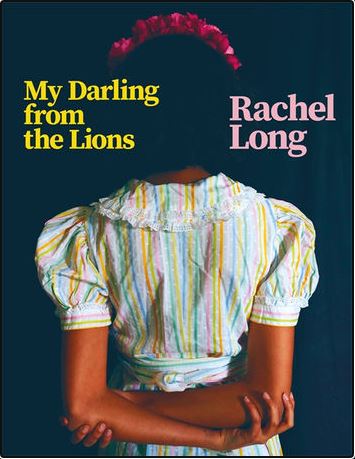
Review: ‘My Darling from the Lions’ by Rachel Long
Rachel Long’s debut collection, My Darling from the Lions, interweaves accessible narrative poems with surrealist ones to explore a mixed-race speaker’s arrival into womanhood. Five nearly identical versions of the poem ‘Open’ occur in the book’s first section. Each features an ‘I’ engaged in the same dialogue with different interlocutors: This morning he told meI…
Read More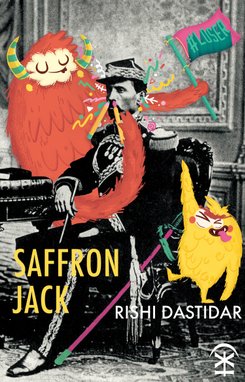
Review: ‘Saffron Jack’ by Rishi Dastidar
Rishi Dastidar’s second collection is a chimera. At once a long narrative poem, a one-man play with modest stage directions, and a DIY manual for How to Set Up and Rule a Nation, the book is also written in the format of a legislative document, with numbered clauses sub-dividing into indented elaborations: 24.2. It was…
Read More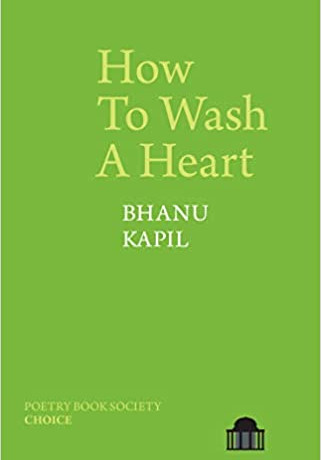
Review: ‘How To Wash A Heart’ by Bhanu Kapil
In How To Wash A Heart, her first UK-published collection, Bhanu Kapil offers a timely and intimate exploration of hospitality, expressed through the story of a fictional relationship between an immigrant guest and a citizen host. Wrapped up in this story are other stories: of the artist trying to create, the body’s inescapably visceral condition,…
Read More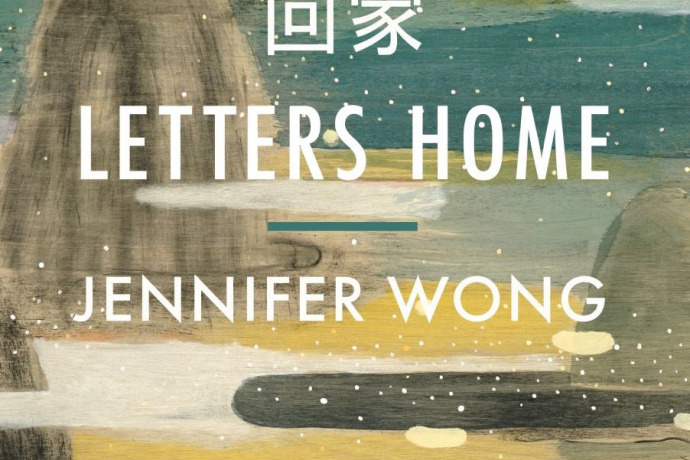
Review: ‘Letters Home’ by Jennifer Wong
‘Home’ is a contentious word. Both personal and political, ‘home’ implies belonging, and not belonging. In Robert Frost’s ‘Death of the Hired Man’, ‘Home is the place where, when you have to go there, / They have to take you in’. But is that place where we live, where we were born, where our family…
Read More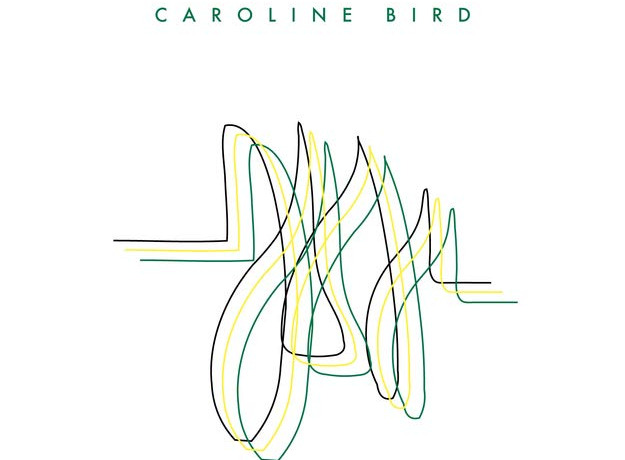
Review: ‘The Air Year’ by Caroline Bird
When was the last time you were asked to do the impossible? Caroline Bird’s essay ‘The Discipline of Getting Lost: On the Impossibility of Poems’ (in the Nine Arches anthology The Craft) speaks of freeing yourself to write poetry by accepting how impossible it is to put your soul down on paper. Resonant of Ben…
Read More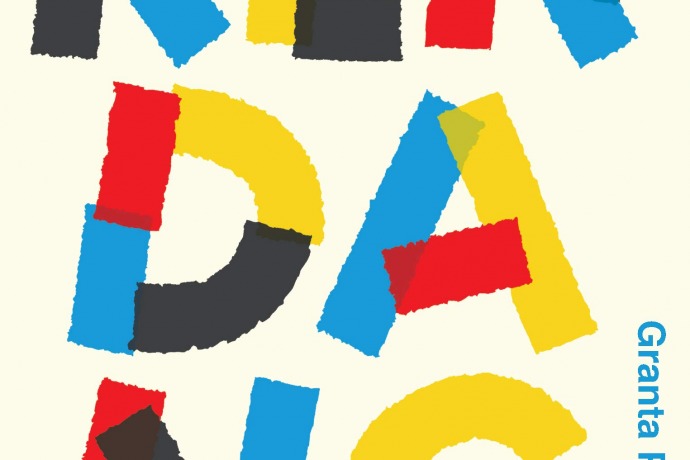
Review: ‘RENDANG’ by Will Harris
To understand Will Harris’s RENDANG, I keep coming back to the poem ‘The White Jumper’, which appears at the end of the collection’s first section. It’s a poem of fragments, puzzle-pieces which expand to bear meaning on the rest of the poems in subtle, complex ways. The poem opens with a figure ‘running and jumping from…
Read More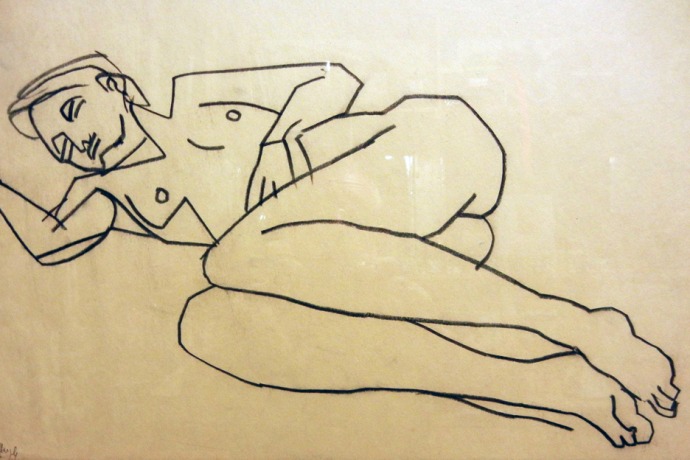
Review: ‘Arias’ by Sharon Olds
Arias is a collection that sings both because of death and in spite of it. In this song of herself, Sharon Olds locates the pain that gives rise to song, offering readers the depth of perspective and celebration of life that the end of life can bring. The paperback version of Arias has a satisfying…
Read More
Review: ‘The Craft: A Guide to Making Poetry Happen in the 21st Century’, edited by Rishi Dastidar
24 essays on how poetry happens in the twenty-first century provide rich nourishment for curious readers and aspirational writers alike. Rishi Dastidar wants you to revel in the possibilities thrown-up by poem-making. Recognising that, ‘to write poetry today, you need to be thinking about more than just your technical, prosodic abilities’, The Craft comes with…
Read More
Review: ‘Whip-Hot & Grippy’ by Heather Phillipson
Heather Phillipson’s Whip-Hot & Grippy is a nightmarish, lurid inventory of news cycles, junk food, sex, bodies, and failed communication ‘come to thrash the living daylights out of you’. If 2016 was the year that Heather Phillipson ‘lost [her] sense of humour’ (by her own account), 2019 is the year she has channelled nihilism and…
Read More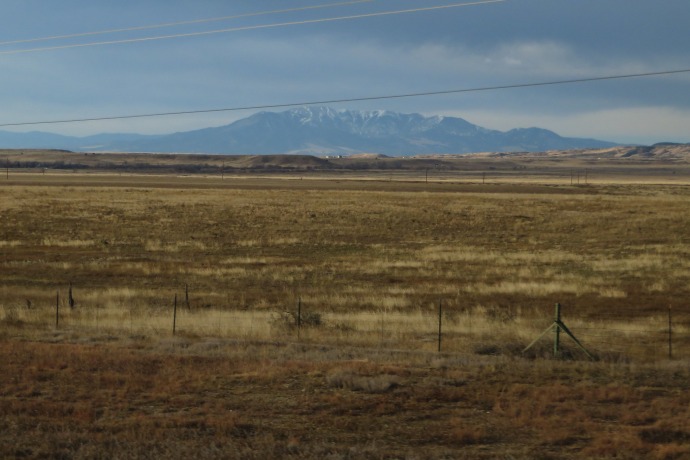
Ledbury Emerging Poetry Critic Review: ‘Whereas’ by Layli Long Soldier
Layli Long Soldier’s debut poetry collection, Whereas (Picador) roots through the vocabularies it employs, carefully tracing its linguistic inheritances. Long Soldier is a citizen of the Oglala Lakota Nation, and is keenly aware of the power – and lack thereof – that language can command. Whereas is split into two parts. Part I, ‘These Being…
Read More
Ledbury Emerging Poetry Critic Review: ‘The Caiplie Caves’ by Karen Solie
Time and place are the central nodes of Karen Solie’s The Caiplie Caves (2019), a three-part poetic narrative traversing human life, both historical and modern, through the spatial lens of the geographic region around the titular Caiplie Caves. Solie begins with an invocation of John Berger’s Ways of Seeing: ‘The past is not for living…
Read More